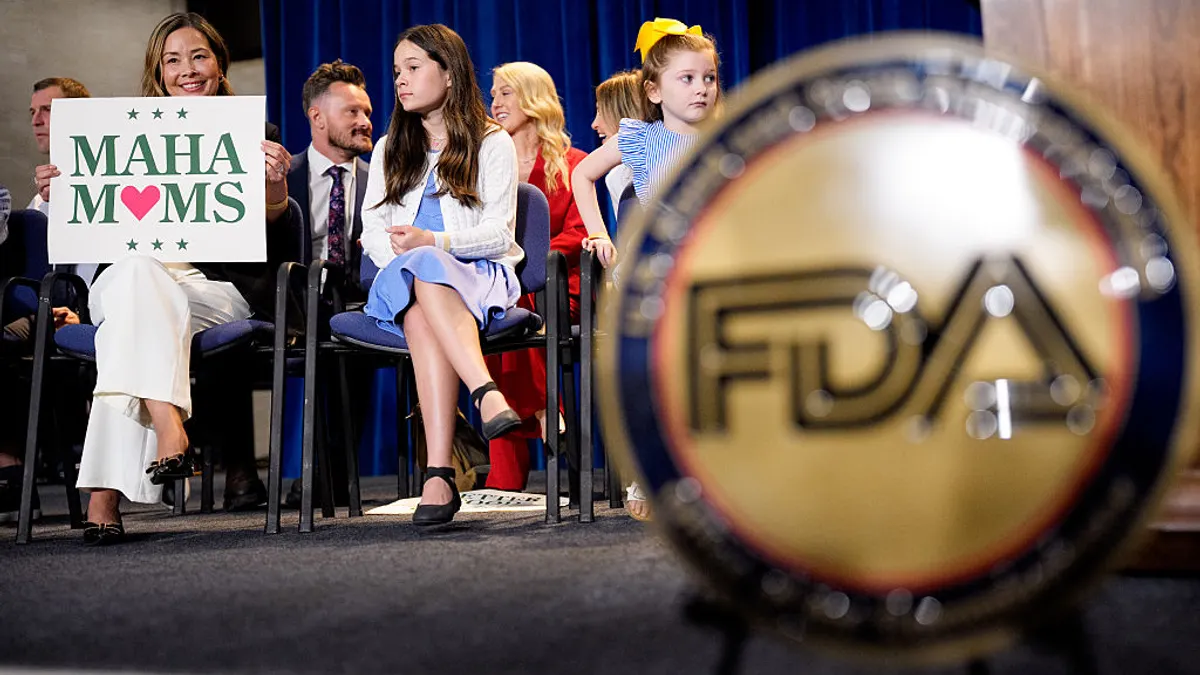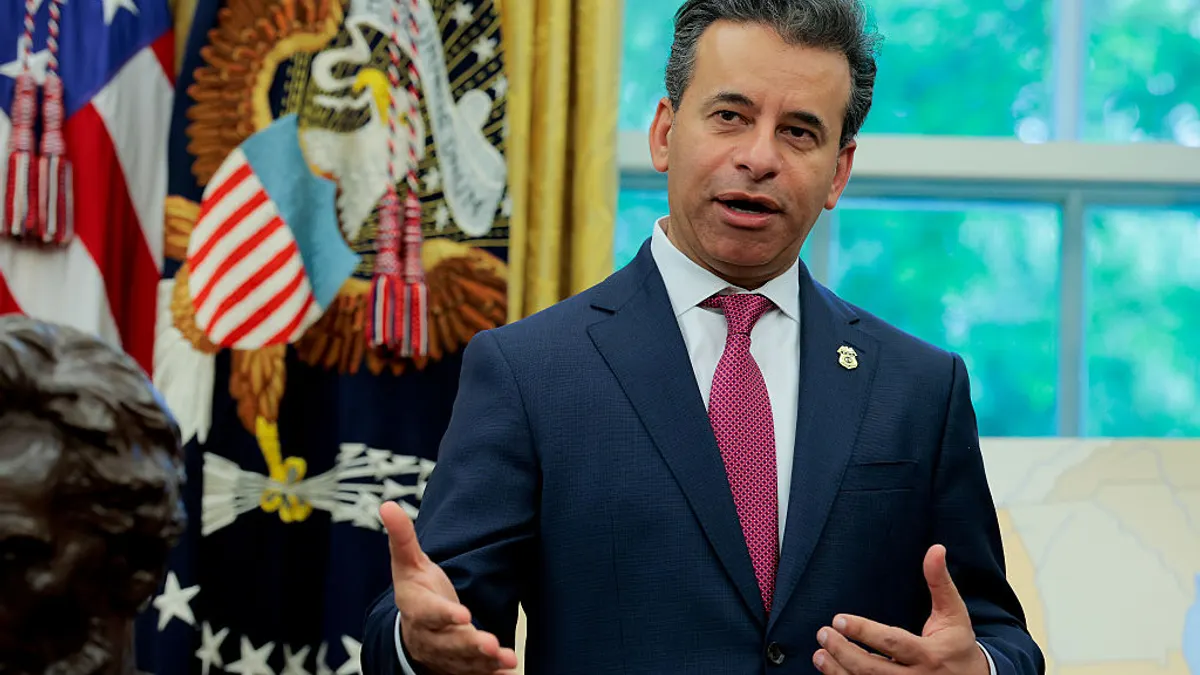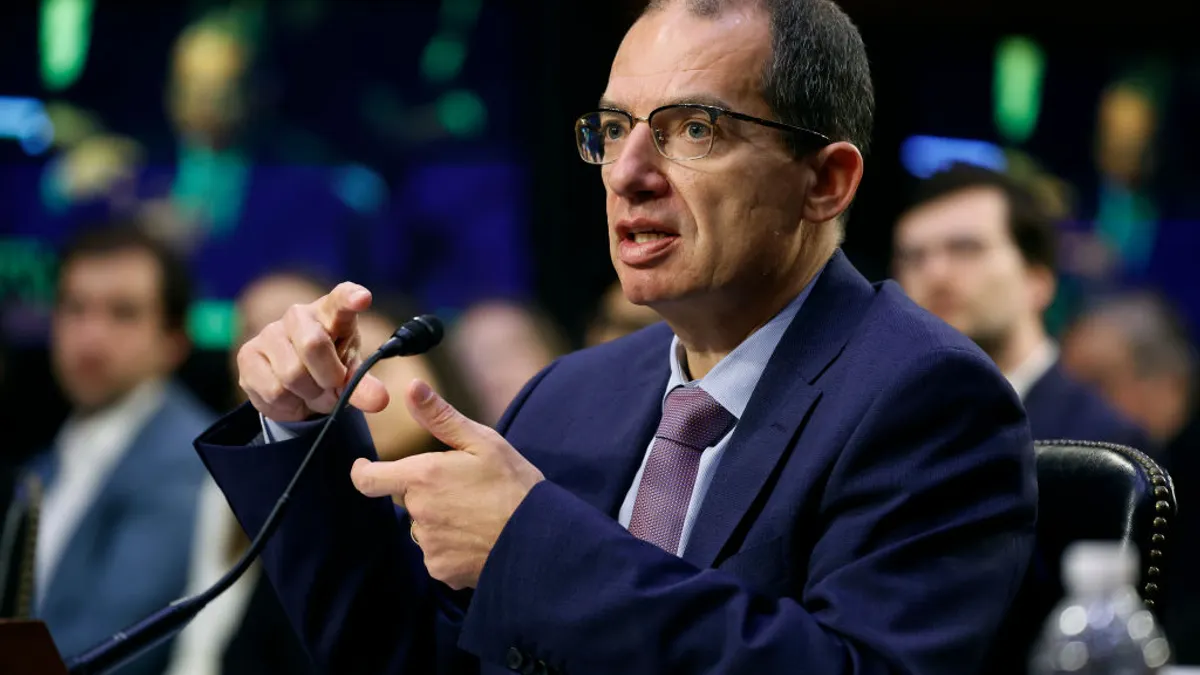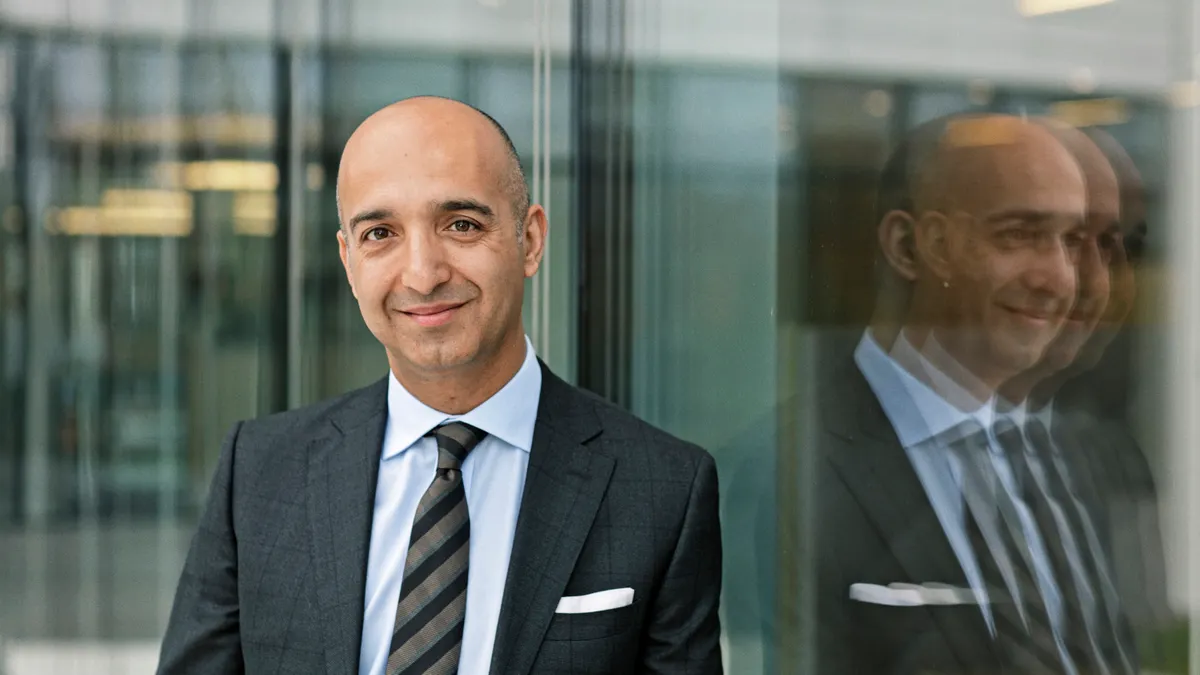Commissioner Dr. Martin Makary’s recent decision to tap outspoken FDA critic, Dr. Vinay Prasad, as head of the Center for Biologics Evaluation and Research has brought the agency’s future into sharper focus.
While Prasad’s views may not align with many of the FDA’s traditional policies, they do fit into a broader MAHA agenda of scrutinizing industry ties, questioning scientific norms and taking a more critical stance on vaccines.
Prasad’s appointment last week is the latest in a series of controversial FDA shakeups, including HHS Secretary Robert F. Kennedy Jr.’s move to slash thousands of FDA jobs, followed by new reports that some of those terminated workers will be rehired.
It’s also par for the course for the Trump administration, which has appointed a string of agency heads who are critical of, and even hostile towards, the departments they’re now tasked to run.
Here, we take a look at who’s in at the FDA, who’s out, and what could be next for the agency’s leadership.
CBER director
Who’s in: Prasad, a hematologist oncologist, medical researcher and long-time YouTube influencer, has criticized vaccine mandates for kids and called his predecessor, Dr. Peter Marks, a “dangerous, pro-pharma” regulator in a blog.
The tension between them became more clear when Marks blasted RFK Jr. for “misinformation and lies” in his March resignation letter.
Prasad’s potential impact: As CBER chief, Prasad will oversee vaccine, and cell and gene therapy regulations — two areas he’s lambasted in recent years. Prasad argued that COVID vaccines for children shouldn’t receive emergency use authorization; criticized Marks’ controversial decision to override FDA reviewers and authorize Sarepta Therapeutics’ Duchenne gene therapy, Elevidys; and wrote that Abecma, Bristol Myers Squibb’s CAR-T therapy for multiple myeloma isn’t worth its price tag.
Despite these criticisms, Prasad struck a more moderate tone when he spoke to FDA staffers last week, according to reporting in the Substack newsletter, Inside Medicine, by Brigham and Women’s Hospital physician Dr. Jeremy Faust.
Among the issues now on Prasad’s plate is navigating the future of the FDA’s vaccine division at a time when HHS is ramping up vaccine scrutiny. Early this month, RFK Jr. announced a plan to require placebo testing for all new vaccine approvals, which an agency spokesperson called a “radical departure” from traditional standards and vaccine experts have warned could delay clinical development and approvals for new shots.
Two upcoming vaccine and biologics decisions — a May 31 PDUFA date for Moderna’s next-gen COVID jab and an Aug. 31 decision on Capricor Therapeutics’ Duchenne muscular dystrophy cell therapy — could provide more insight into the agency’s shifting attitude in these therapeutic areas.
FDA commissioner
Who’s in: Makary, a Johns Hopkins surgeon who questioned COVID-19 vaccine mandates, replaced Dr. Robert Califf, who stepped down in January.
Like Marks, Califf has voiced concerns over changes at the agency and wrote on LinkedIn that the “FDA as we've known it is finished” in the wake of its workforce reduction.
Makary’s impact: In his first six weeks as commissioner, Makary has advanced his familiar talking points on topics like food dyes, increasing transparency and reducing industry involvement in FDA decision making. He’s made moves to limit individuals employed by pharma and other FDA-regulated companies from serving as official members on FDA advisory committees.
Makary also wants to streamline approvals. In 2021 he lamented that the FDA was moving so slowly on the antiviral molnupiravir that “the last COVID wave will be over” by the time it was approved. Now that he’s in the top FDA post, Markary has talked about shortening the drug approval process and recently announced an aggressive plan to roll out AI-assisted scientific review.
Despite those stated priorities some approvals have slowed on Makary’s watch.
The FDA missed its PDUFA date for Stealth BioTherapeutics’ treatment for the ultra-rare, pediatric mitochondrial disease Barth syndrome, with industry watchdogs questioning whether FDA staffing cuts and upheaval played a role in the delay.
The agency also recently delayed full approval for Novavax’s COVID vaccine, asking the company to provide a post-market commitment for additional clinical data. Makary wrote on X that, “this is a new product that Novavax is trying to introduce to the market with a study of a different product from 2021 … we are prioritizing the Gold Standard of Science —not what saves pharma companies ‘tens of millions of dollars.’”
What’s next
Several key leadership positions remain vacant or are currently being filled by acting directors, but others might be in a state of flux. Even CBER’s organizational chart still lists Marks as director.
While the FDA commissioner often changes with presidential administrations, that’s not always the case with other directors. Marks, for instance, had held the CBER director role since 2016, and his predecessor had been in the position since 2010. CDER had only two directors from 1994-2021: Dr. Janet Woodcock and Dr. Steven Galson. Similarly, the Center for Veterinary Medicine director doesn’t necessarily change with presidential administrations.
Here are some of the key positions to watch:
FDA chief counsel: Just days after her appointment, FDA chief counsel Hilary Perkins resigned after clashing with the Trump administration over supporting COVID vaccinations for federal workers and the abortion pill, mifepristone. Makary said he had “no plans” to pull mifepristone, but added the caveat that FDA may act on new data should they get it.
The FDA chief counsel position remains vacant, according to the FDA organizational chart.
Center for Drug Evaluation and Research director: Dr. Patrizia Cavazzoni resigned as CDER director 10 days before President Donald Trump took office. She joined Pfizer as chief medical officer a few weeks later.
Dr. Jacqueline Corrigan-Curay has since stepped in as CDER’s acting director. Coorigan-Curay was previously principal deputy center director and joined FDA in October 2016 as CDER’s director for the office of medical policy, serving through the entirety of the first Trump and Biden administrations.
A career government employee, Coorigan-Curay has held positions at NIH, VA Medical Center, and Congressional Office of Technology Assessment. Prior to those roles, she was an internal medicine physician and former practicing attorney with a law degree from Harvard.
Center for Veterinary Medicine director: Although Center for Veterinary Medicine Director Tracey Forfa has remained in her role, much of the rest of the department was gutted from job cuts, including leaders in the bird flu response and staffers responsible for animal drug safety.
Forfa became the first non-veterinarian to take the position in 2023, but had been with the department since 2002 and at the agency since 1993. She grabbed the reins when her predecessor, Dr. Steven Solomon, retired after being in the role since 2017.



















